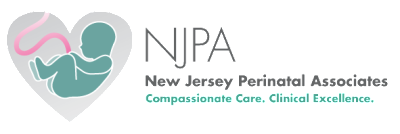
What Should Pregnant Women Know About Coronavirus?
In 2020, we have seen the emergence of Coronavirus, a new virus that has led to a global public health emergency. At NJPA, we want to take the time to inform you about Coronavirus. Initial research shows that Coronavirus does not transfer to the fetus during pregnancy or delivery, nor does it enter breast milk. Keep reading to learn more from the high-risk pregnancy specialists at NJPA.
What is Coronavirus?
Coronavirus, also known as COVID-19, is a viral infection that until recently, had never been identified in humans. This particular virus was first detected in Wuhan City in China, and the first infections were linked to a live animal market. Symptoms of Coronavirus are similar to those of the flu – they mainly include fever, cough, and shortness of breath. Up to date recommendations from the Centers for Disease Control and Prevention state that those infected by the virus should be isolated either in a hospital or in their own home until they are no longer at risk of spreading the disease to others. The main way that the virus is currently spread is through close contact with an infected person. It is not known whether the virus can be spread through semen or sexual intercourse. Above all, we at NJPA recommend that you remain attentive to guidance from the CDC as your primary information source in this time of uncertainty and daily developments.
Does Coronavirus Affect the Fetus During Pregnancy?
Available data are reassuring, but extensive research has not been conducted. Initial studies have confirmed that Coronavirus does not transfer from the mother to the baby during pregnancy. Two small studies on pregnant women with COVID-19 from China indicate that there was no intrauterine infection of Coronavirus from the mother to the baby. Other elements tested for the virus included amniotic fluid, cord blood, neonatal throat swabs, and breast milk samples, and all tests came back negative. Breastfeeding remains encouraged, though pumping should be strongly considered in order to decrease close contact with a sick mother. Some babies born in China were reported to have respiratory distress, though detailed medical histories of these children are unknown. These studies have focused primarily on cesarean section deliveries while data on vaginal delivery and potential transmission is scant. During acute illness, pregnant women will likely need to be monitored in a hospital with close observation of both the mother and unborn baby.
Preventing the Flu and Other Illnesses During Pregnancy
Though pregnant women in the United States should remain concerned about the flu, proper precautions should be taken against Coronavirus as well. Complications of the flu and other illnesses are more common for pregnant women and can last longer than for those in the general population. Historical data from SARS infection suggests an increased risk of small babies and early delivery; no increased risk of congenital anomalies is reported. The best way to prevent the flu is to get a flu shot, which may protect you and your baby from getting the flu for up to six months after you give birth. Other prevention methods, which apply to preventing Coronavirus as well, include washing your hands often, avoiding touching your face (especially your eyes, nose, and mouth), avoiding contact with people who are sick, and social distancing. You should also be sure to disinfect any surface you frequently touch, continue to follow a healthy diet, and get lots of rest to strengthen your immune system.
High-Risk Pregnancy Care in New Jersey
If you have any further questions, the high-risk pregnancy specialists at New Jersey Perinatal Associates would be happy to help you. We specialize in high-risk pregnancy care, including prenatal diagnosis, medical complications of pregnancy, and pregnancy-related complications. With several offices located throughout New Jersey, we are proud to help families achieve successful pregnancies and receive support every step of the way. To learn more and to make your appointment at NJPA, please contact us today.
